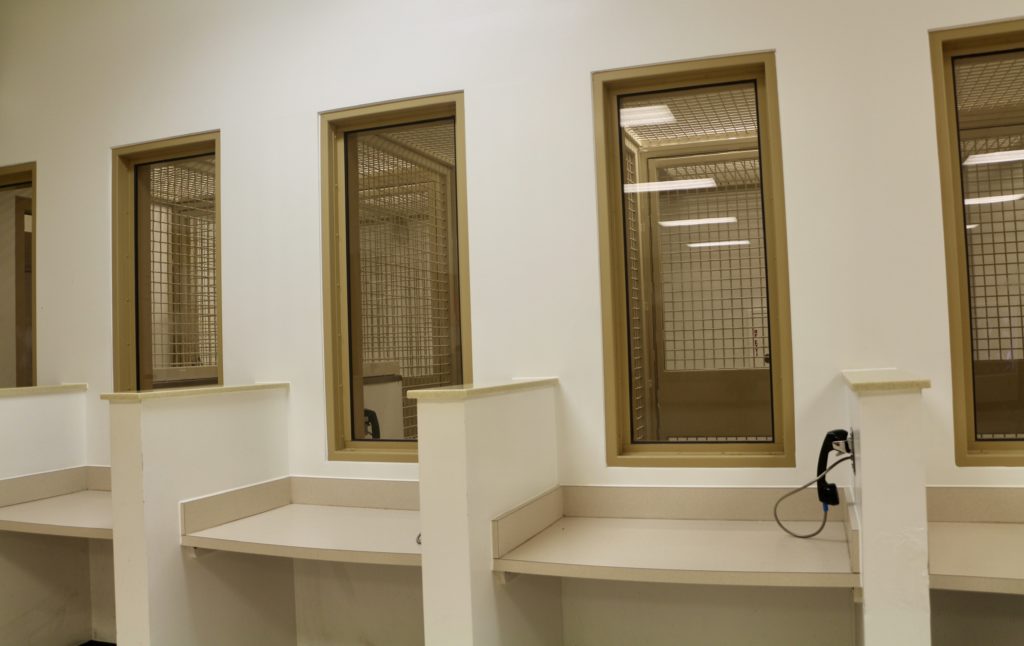
The family of a man who was killed in a Tennessee prison last year has sued the private, Brentwood-based company that runs it.
They say the death could have been prevented, if the for-profit corporation had invested more resources to keep the prison safe. Now, the family wants CoreCivic to be held accountable.
 Courtesy Elizabeth Hudson
Courtesy Elizabeth Hudson Terry Deshawn Childress died on Feb. 24, just one day after his parole hearing. Now his family is suing the company that runs the prison.
In a lawsuit, Terry Deshawn Childress’ family claims CoreCivic is allowing people housed in its prisons to “die needlessly” and is putting profits ahead of safety.
“According to one of its own former employees, CoreCivic — a private prison corporation that operates Trousdale Turner Correctional Center for profit — is driven by ‘the power of the almighty dollar,'” their attorney, Daniel Horwitz, wrote in a civil complaint. “As a result, CoreCivic severely understaffs Trousdale Turner Correctional Center while willfully disregarding inmate safety there.”
The family is seeking $10 million in damages. The lawsuit also calls for any profits yielded from understaffing the prison to be given away. Plus, they want an independent monitor to keep an eye on the facility — otherwise, they think the state should shut it down.
The company has been punished for low staffing levels and other issues in the past. The state levied more than $2 million in sanctions after a 2017 audit found CoreCivic’s facilities were gravely under-staffed. In 2020, auditors found once again that the company had failed to fill critical posts at its facilities and did not keep sufficient records of its staff rosters.
CoreCivic has declined multiple requests from WPLN News to share staffing rosters, citing security concerns.
Multiple loved ones of those housed inside CoreCivic facilities have reached out to WPLN News in recent years to share stories of fear and frustration over the conditions within the private prisons, including Childress’ family. A Facebook page called “Trousdale Turner – Close It Down,” which regularly posts stories of alleged misconduct and mismanagement inside the prison, has nearly 3,000 followers.
“It’s like we’ve been betrayed,” Childress’ sister, Elizabeth Hudson, said last year. “You have not only my brother, but other inmates that’s in there or have been in there, and they’re supposed to be protected.”
But in spite of mounting concerns about conditions within CoreCivic facilities, the state has continued to renew its contract with the company. (Nashville and CoreCivic cut ties in 2020 after the Metro Council introduced a resolution to stop contracting with the company. The corporation pulled out of the Metro Detention Facility before the resolution went to a vote, saying in a letter to the Davidson County sheriff that it would not “be used as a punching bag by political opponents”).
A disproportionate number of in-custody homicides
Childress was beaten to death in his cell last February, the day after a parole hearing. He was one of at least 14 people killed at a CoreCivic facility in a five-year span.
The company houses only about a third of the state’s prison population, but accounts for nearly all homicides behind bars, besides executions.
CoreCivic has claimed that more people are killed in its facilities because it houses more individuals convicted of murder and other violent crimes. But the Tennessee Department of Correction says the facilities are only authorized to house people who are classified for minimum or medium security.
Childress’ family alleges in their lawsuit that the man who killed him — who has since been indicted) — was misclassified and should have been held in a more secure unit. Their attorney alleges that the company routinely agrees to supervise people who pose a greater security risk than they are equipped to handle. Further, he claims the company did not have enough correctional officers monitoring the unit where Childress was housed who could have intervened when his cellmate allegedly attacked him.
Ryan Gustin, a CoreCivic spokesperson, said in an email that the company has not yet been served with the lawsuit and does not comment on pending litigation.
Gustin noted that both state-run and private prisons are facing staffing shortages. According TDOC, government operated facilities had about 1,200 open security officer positions last. Gustin says the company has boosted wages to recruit more workers.

